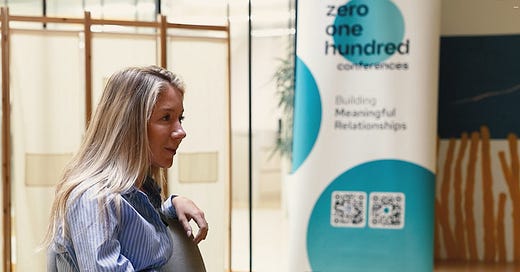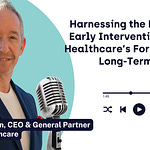Family offices have long been considered the "quiet capital" of private markets—discreet, patient, and often focused on traditional assets like real estate. But the European venture capital landscape is evolving, and family offices are stepping into a more visible and strategic role.
In our latest interview, we spoke with Merel Kraaijenbrink, Chief Operating Officer of Dealflow, to explore how family offices are moving from the sidelines to the center of innovation—and what’s needed to bring more of them into venture capital.
Dealflow’s Mission: Building Bridges in European Innovation
Dealflow was created to connect the dots between startups, investors, corporates, and public entities in Europe. Backed by the European Commission, the platform’s mission is to make EU-funded startups more visible and connect them with the capital, partnerships, and support they need to scale.
Crucially, Dealflow also works with family offices, curating forums and facilitating long-term relationships between these private investors and GPs who align with their values.
“Family offices are looking for more than returns—they want alignment, impact, and trust.” — Merel Kraaijenbrink
From Discreet to Hands-On: A New Generation Steps In
Historically, family offices were quiet investors, preferring asset classes like real estate for their stability and predictability. But this is changing.
A new generation—sons, daughters, and grandchildren—are pushing for more diversification, more impact, and more involvement. Examples like the Arnault family investing in tech and media demonstrate a wider trend: family offices are becoming hands-on partners, not just capital providers.
“We see younger family members reaching out, opening the door for their parents or grandparents to enter venture capital.”
Building Trust: The Missing Piece in the VC-Family Office Equation
One of the biggest hurdles is trust. Many family offices lack the experience or internal capacity to confidently navigate VC. Others may still carry scars from past investments made without sufficient diligence or alignment.
That’s where Dealflow steps in. Through small, curated events like the upcoming Family Office Forum, Dealflow enables one-on-one relationship building between GPs and family offices.
“Investing is like a marriage—it lasts longer than some relationships. You need to get to know each other first.”
Case for Impact and Deep Tech
Where are family offices most likely to invest? According to Merel, the answer is clear:
Climate tech
Deep tech
Sustainability
Healthcare innovation
These areas align well with the values of many family offices and are particularly suited to long-term, patient capital.
Europe’s Growth Capital Gap
While Europe has made significant strides in pre-seed and seed-stage funding, Series B and beyond remains a weak spot. This is where U.S. investors often step in—bringing capital, yes, but also pulling promising European companies abroad.
“We risk brain drain. If European companies have to move to the U.S. for growth capital, we lose the innovation we helped build.”
To address this, the EU has launched new initiatives like the STEP program, increasing ticket sizes and pushing into Series C territory. But private capital must also rise to meet the challenge.
High Net Worth Individuals: Agile but Undersized
High-net-worth individuals (HNWIs) are also becoming more active in venture capital. While their tickets are smaller than family offices, their speed and flexibility can help close funding rounds—especially in competitive markets.
However, the real leverage lies in channeling this capital toward growth-stage VC funds, an area Europe still lacks. Dealflow and others are working to build that pipeline.
Direct vs Fund Investing: What's Best?
Should family offices invest directly or through funds? Merel’s take:
Direct investing works if the family has deep sector expertise (e.g., the Walton family in e-commerce).
Otherwise, GP partnerships provide essential deal sourcing, due diligence, and portfolio management that most families can’t easily replicate.
The Path Forward: More Growth Funds, Smarter Regulation
What’s needed to unlock more capital?
Public-private partnerships to derisk large-ticket investments
Regulatory reform to allow pension funds and institutional capital to back VC
More growth funds focused on Series B+
Continued education and awareness-building for family offices and HNWIs
As Merel notes, the momentum is there—but it requires consistent effort to convert interest into lasting engagement.
Final Thoughts
The future of European venture capital won’t be built on public money alone. If we want to scale innovation without losing it abroad, we need to bring in patient, aligned, and values-driven capital—and family offices are uniquely positioned to play that role.
But trust takes time, and success depends on matching the right GPs with the right families, under the right terms.
Dealflow’s work is showing that it’s not only possible—it’s already happening.
Want more insights like this? Subscribe to stay updated on the people and capital shaping Europe’s venture landscape.













Share this post